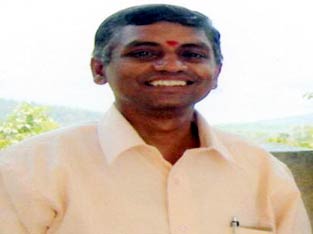 In cantons around Nepal, there are nearly 20,000 Maoist fighters who have not been integrated into the security forces
In cantons around Nepal, there are nearly 20,000 Maoist fighters who have not been integrated into the security forces The United Nations mission established to monitor Nepal's peace process, Unmin, is scheduled to leave the country on Saturday amid uncertainty about its future.
The mission is closing after Nepal's warring political parties agreed not to extend its mandate last September.
But there is still no agreement over how they will take over its monitoring duties.
The departing UN chief, Karin Landgren, is hoping for an 11th-hour deal so that there will be a smooth handover.
 The departing UN chief in Nepal, Karin Landgren, is hoping for a last-minute deal
The departing UN chief in Nepal, Karin Landgren, is hoping for a last-minute deal "My fear is that if there isn't consensus by Saturday, there'll be a lot of nervousness among the population," she says.
"But I think the parties feel the pressure and I am confident that they will come to some arrangement before our deadline on 15 January."
Established in 2007, Unmin monitored the arms and personnel of the Maoist army and the Nepalese Army under a peace deal that brought 10 years of conflict between the Maoists and the state to an end.
It also helped conduct elections to a Constituent Assembly in 2008, in which the Maoists won most seats but fell short of an outright majority.
But despite these successes, Nepal is still a long way from concluding its peace process and writing a new democratic constitution.
“Start Quote
Unmin has been a psychological deterrent on both sides not to break the peace process”
End Quote Baburam Bhattarai Maoist Vice-Chairman "I believe we could have done more given a different mandate," says Ms Landgren.
"It's been frustrating having the monitoring end of things without being able to influence the decision making."
Many of the conditions of the 2006 Comprehensive Peace Agreement have yet to be fulfilled.
The Nepalese Army has not been restructured. More than 19,000 former Maoist fighters remain in cantons around the country, their weapons under UN supervision.
A deal to either integrate them into the security forces or rehabilitate them into civilian life has stalled because of distrust between the Maoists and an alliance of the Nepali Congress and the Communist Party of Nepal (United Marxist Leninist).
 Nepali MPs could not be persuaded to back Ram Chandra Poudel for the premiership
Nepali MPs could not be persuaded to back Ram Chandra Poudel for the premiership The peace process in Nepal has been deadlocked since the collapse of the Nepali Congress and CPN-UML coalition government in June.
Since then, the country's parliament has held 16 unsuccessful votes to chose a new prime minister.
A 17th vote was cancelled this week after the only candidate standing, the Nepali Congress MP Ram Chandra Poudel, withdrew.
It is hoped that this will pave the way for a new power-sharing government that will agree on how to take over the UN's monitoring duties and move the peace process forward.
All the parties agree there is no alternative to consensus. But there remains deep division between them.
'Time is short' The Maoists want the UN to stay.
"Unmin has been a psychological deterrent on both sides not to break the peace process," says Maoist Vice-Chairman Baburam Bhattarai. "Without it there could be trouble."
 More than 19,000 former Maoist fighters remain in camps around the country
More than 19,000 former Maoist fighters remain in camps around the country The Maoists hope to persuade the other parties that an impartial, international presence is necessary before Unmin's deadline expires.
But the Nepali Congress and CPN-UML disagree.
Some in these parties feel the mission has always been too close to the Maoists, and resent its equal treatment of the former rebels and the state security forces.
In this respect they are backed by India, Nepal's large and powerful southern neighbour.
India, who is fighting a war with Maoist rebels within its own borders, has played a key role in trying to exclude the Nepali Maoists from power.
'Special relationship' It has also had a behind-the-scenes hand in advising members of the UN Security Council that keeping Unmin in Nepal would only slow down the peace process.
"India sees any foreign presence in the territory of Nepal as a possible challenge to its hegemony," says political commentator, C K Lal.
"This is because India interprets the 1950 Indo-Nepal Treaty of Peace and Friendship as a special relationship between the two countries - and thinks that India has special rights over foreign policy in Nepal."
As Unmin waits for a last-minute deal between the political parties, there is uncertainty over how the peace process will continue.
In particular, with political attention focused on who is going to be the next prime minister, it is looking increasingly unlikely that the 28 May deadline to write a new constitution will be met.
As time runs out for a compromise deal to take over the UN's duties, Ms Landgren says she believes that the gains made during the last four years will not be reversed.
"But it's up to Nepalis to pull up their boot straps because time is very short."






